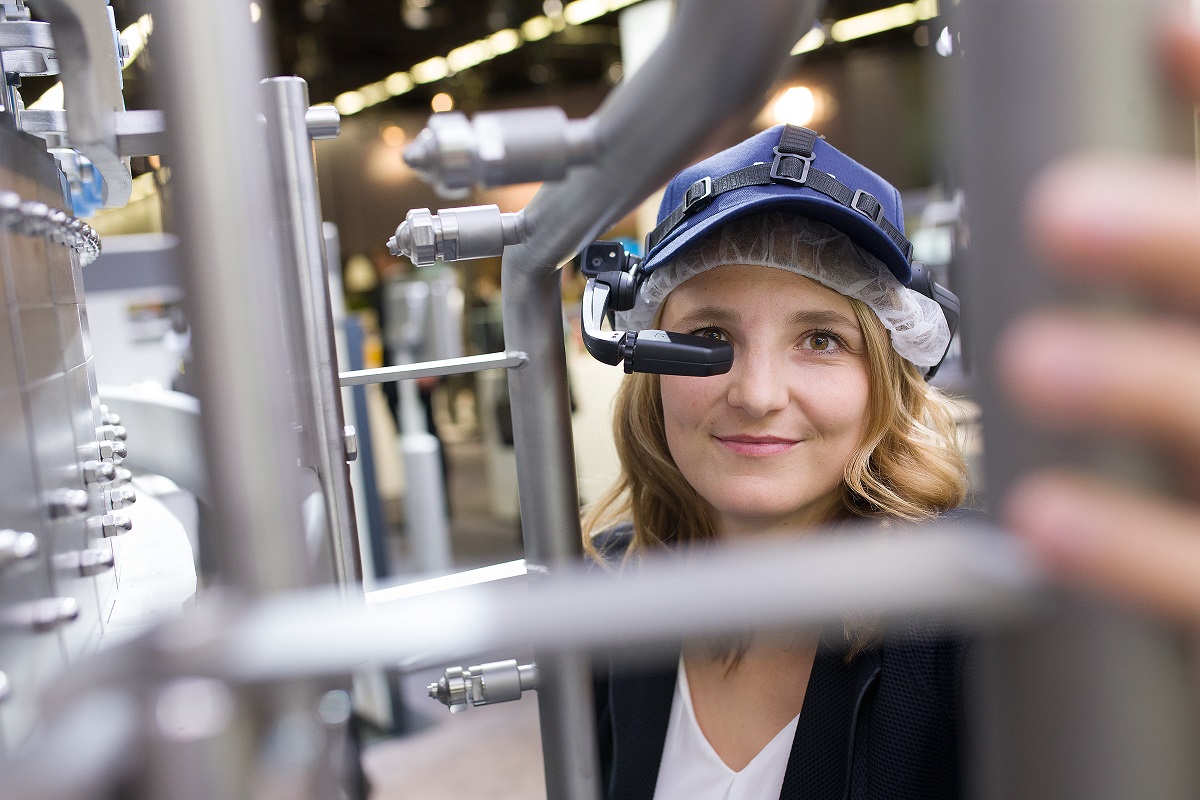Due to the pandemic, KHS is assisting customers using its virtual solutions when face-to-face visits are impossible. The company’s digital systems and solutions including the intelligent ReDiS remote maintenance system and Basic Line Monitoring, help ensure that production processes are runnign efficiently. Customers also benefit from fast, uncomplicated technical support through KHS’ Augmented Reality Service and 24/7 Service HelpDesk.
For many companies the pandemic has affected the usual services performed on site, such as overhauls or maintenance, the consequences of which are downtime, production stops, loss of productivity and turnover and considerable extra expenditure to maintain production capability.
Remote maintenance
KHS offers its customers the Remote Diagnostic Service or ReDiS, a tried-and-tested remote maintenance system for KHS lines and machines. It allows engineers to quickly, easily and securely access registered KHS components worldwide through a network connection at any time. “This means that we can analyse and remedy line faults or transfer software updates and modified system parameters to the local system,” explains Ingo Hackler, head of Remote Services. “For us, ReDiS is an established model of success. We started developing the software for it at KHS as far back as in 2002; more than 2,500 customer projects are now already plugged into the system.”
For the digital monitoring of entire lines the Dortmund systems supplier provides its web-based Innoline MES Basic Line Monitoring (BLM) module. This setup assesses a line’s efficiency and pinpoints any possible errors. In doing so, BLM helps to make ramp-up more efficient and also facilitates quick identification of any weak points in the operation of the line for the customer.

Wearing data goggles the operator has both hands free to carry out the necessary work. (Source: KHS Group)
Four eyes better than two
With today’s highly complex machines, it is often helpful to have additional support when troubleshooting. KHS has risen to this challenge with its Augmented Reality Service (ARS), an audiovisual solution. “Here, the operator wears data goggles,” Hackler says. “This enables our specialists to gain a clear picture of the situation on site according to the principle of ‘I see what you see’.” With the help of these goggles KHS headquarters can clearly mark objects or display them to the operator. The latter has both hands free and can carry out the necessary work in real time while a KHS expert looks over their shoulder – virtually. Images or entire video sequences can also be transmitted and clear instructions issued through parallel audio communication. ARS is compatible with data goggles produced by various manufacturers.
During the restrictions imposed by the pandemic, the significance of ARS for customer support has continuously increased. “Our smart service is becoming more and more the norm,” says Hackler. It was possible to carry out format conversions at a customer plant in Greece using this service, for example. The ramp-up phase on a returnable glass line in Mozambique was also initiated using this technology; complete lines have even been installed and commissioned in this time, such as a high-speed canning line in Nigeria.
KHS also proves itself to be a reliable partner with its 24/7 Service HelpDesk that is available round the clock for spare parts inquiries, processing technical problems and help when machines stop. The number of hotline personnel has been increased during the corona pandemic – a precautionary measure that has turned out to be unnecessary so far thanks to the robustness of KHS’ plant engineering; even in times of crisis KHS lines and machines continue to run reliably and without any trouble. The supply of spare and wear parts is constantly assured – and thus the high availability of the machines.














